
The Darrell McClain show
Independent media that won't reinforce tribalism. We have one Planet; nobody's leaving, so let’s reason together!! Darrell McClain is a Military veteran with an abnormal interest in politics, economics, religion, philosophy, science, and literature. He's the author of Faith and the Ballot: A Christian's Guide to Voting, Unity, and Witness in Divided Times. Darrell is a certified Counselor. He focuses primarily on relationships, grief, addiction, and PTSD. He was born and raised in Jacksonville, FL, and went to Edward H white High School, where he wrestled under Coach Jermy Smith and The Late Brian Gilbert. He was a team wrestling captain, District champion, and an NHSCA All-American in freestyle Wrestling. He received a wrestling scholarship from Waldorf University in Forest City, Iowa. After a short period, he decided he no longer wanted to cut weight, effectively ending his college wrestling journey. Darrell McClain is an Ordained Pastor under the Universal Life Church and remains in good standing, as well as a Minister with American Marriage Ministries. He's a Believer in The Doctrines of Grace, Also Known as Calvinism. He joined the United States Navy in 2008 and was A Master at Arms (military police officer). He was awarded several medals while on active duty, including an Expeditionary Combat Medal, a Global War on Terror Medal, a National Defense Medal, a Korean Defense Medal, and multiple Navy Achievement Medals. While in the Navy, he also served as the assistant wrestling coach at Robert E. Lee High School. He's a Black Belt in Brazilian Jiu-Jitsu under 6th-degree black belt Gustavo Machado. Darrell Trains At Gustavo Machado Norfolk under the 4th-degree black belt and Former Marine Professor Mark Sausser. He studied psychology at American Military University and criminal justice at ECPI University.
The Darrell McClain show
Strategies, Myths, and Legal Battles: Navigating U.S. Politics and the Economy
Can personal attacks win elections, or are they a recipe for disaster? Join us for a compelling conversation where we dissect the Republican Party's strategy to challenge Vice President Kamala Harris and explore why focusing on substantive issues might be the winning formula. We then shift gears to discuss the state of the U.S. economy, celebrating the lowest inflation rates in three years and examining President Biden's policies that could lead to a Federal Reserve interest rate cut. This economic uplift brings new optimism for Democrats as we approach the next election cycle.
In our next chapter, we bust some myths and confront hard truths about crime rates and immigration. Contrary to popular belief, recent data indicates a significant drop in violent crime during the Biden administration, and we debunk the narrative linking migrants to increased crime. Additionally, we highlight the intriguing emergence of groups like "White Evangelicals for Kamala Harris," analyzing their potential to reshape the traditionally Republican evangelical vote. Positive economic news further bolsters the conversation, painting a complex but hopeful picture.
Finally, we tackle the contentious issue of abortion rights, focusing on state-level ballot measures and their broader implications. From Missouri to Arizona, we examine upcoming legislative battles and the shifting sentiments among American voters. Hear about the challenges facing the pro-life movement and the surprising public support for pro-abortion measures. This episode is packed with critical analysis and thought-provoking commentary on the future of abortion legislation in the U.S. and the societal values shaping these pivotal decisions.
The Republican Party needs to make a serious shift here, and the first thing is the Republican Party, Donald Trump, people here at Fox quit complaining that she's not giving an interview. You don't need an interview from Kamala Harris. We need him to win. But you've got to go out and do the work. And the one thing Republicans have to stop quit whining about her. I want this campaign to win, but the campaign is not going to win.
Speaker 1:Talking about crowd sizes it's not going to win. Talking about crowd sizes it's not going to win. Talking about what race Kamala Harris is it's not going to win. Talking about whether she's dumb it's not. You can't win on those things. The American people are smart. Treat them like they're smart. Episode 423, Independent Media. That Will Not Reinforce Tribalism. We have one planet. Nobody is leaving, so let us reason together. You just heard the former governor of South Carolina and the former ambassador to the United States, Nikki Haley, and former I guess it would be 2024 primary candidate, Nikki Haley, on Fox News trying to tell them that they need to figure the message out when it comes to beating Vice President Kamala Harris and that the messaging that has been coming out of the Trump administration is not going to work.
Speaker 2:But this is a different kind of a thing. Today we're going to talk about one subject and then we'll start going back to the other, because we sort of love that, don't we? But it's an important no, it's an important subject. They say it's the most important subject. I'm not sure it is, but they say it's the most important. Inflation is the most important, but that's part of economy.
Speaker 3:US inflation has hit its lowest level in three years Great news for Americans, for the economy Could now set up the Federal Reserve to cut interest rates soon. President Biden yesterday, touting his economic policies, would ask about those new numbers.
Speaker 2:Yes, yes, yes, I told you we're going to have a soft landing. We're going to have a soft landing. My policies are working. Start right that way.
Speaker 2:Okay, now, this is a little bit different day, because this is what we're talking about a thing called the economy. They wanted to do a speech on the economy. A lot of people are very devastated by what's happened with inflation and all of the other things. So we're doing this as an intellectual speech. We're all intellectuals today. Today, we're doing it and we're doing it right now and it's very important. They say it's the most important subject. I think crime is right there. I think the border is right there.
Speaker 2:Personally, we have a lot of important subjects because our country has become a third world nation. We literally are a third world nation. We're a banana republic in so many ways and we're not going to let the third world nation. We're a banana republic in so many ways and we're not going to let third world nation. We're a banana republic in so many ways and we're not going to let that happen because we're starting a free fall. Being a totally disrespected person, six weeks ago, nobody thought she had a chance, nobody and I don't think she could possibly win. If she does, our country is finished. You want to know the truth, but she was totally disrespected, the most unpopular vice president in the history of our country.
Speaker 2:For nearly four years, kamala has crackled as the American economy has burned. What happened to her laugh? I haven't heard that laugh in about a week. That's why they keep her off the stage. That's why she's disappeared. That's the laugh of a crazy person. I will tell you if you haven't done it, it's a crazy. She's crazy. They told her don't laugh. Don't laugh. No, her laugh is career threatening. They said don't laugh. She hasn't laughed. She doesn't laugh anymore. It's smart, but someday it's going to come out. That's the laugh of a person with some big problems, with some big problems. We're not going to let this incompetent socialist lunatic keep breaking our economy for four more years. It'll destroy our country. On election day we're going to tell her that we've had enough, that we can't take it anymore. Kamala, you're doing a horrible job. You know why she hasn't done an interview Because she's not smart, she's not intelligent and we've gone through enough of that with this guy, crooked Joe.
Speaker 1:So let me be very frank and clear about this. You're not going to turn Trump into what he is not. Donald Trump is not a policy person, as much as they would like him to cling to policy. That's just not what is going to happen Now, as of yesterday, because today's Thursday.
Speaker 1:So the numbers came out, and this is from the New York Times that inflation has now fallen below three percent and that is the first time since 2021. The consumer prices rose to 2.9 percent, or 2.9 percent in the year through July, a downtick from prior, the prior month. The report keeps the Federal Reserve firmly on track to cut interest rates next month and basically I mean some would make this short but as interesting as possible but the consumer price index cooled in July compared with the year earlier, providing further evidence that inflation is moderating and is likely keeping the Federal Reserve firmly on track to cut the interest rates at the meeting that the Federal Reserve is going to have next month. The Bureau of Labor Statistics reported easing slightly from 3 percent in June. The figure was milder than economists had expected and it marked the first time inflation has slipped below 3 percent. Now. Easing inflation has Democrats tasting victory After more than two years of being politically battered over soaring prices, wednesday's inflation report left many Democrats feeling victorious about the consumer price rising 2.9% in the year through July. So the report keeps the Federal Reserve on track again, as I said, and that move could lift economic sentiment in the United States ahead of the November election. Walmart will release quarterly earnings on Thursday I haven't seen them yet and it's a good gauge for how the US consumers are faring and this quarter will cover spending on activities like summer vacations, early back to school.
Speaker 1:Shopping Noted that inflations have driven more people who make over $100,000 to their stores, and analysts will be looking for signs that those shoppers have stayed. Even as inflation has eased, the price of many goods, including cars, clothes and some foods continue to fall in July. So did some service prices that have been a big driver of recent inflation, like plane tickets, but a few categories remain stubborn, most notably housing and car insurance. Now, noting that inflation has jolted the stock market a few weeks ago, but this time nothing really caused it to bounce the S&P 500 and the NASDAQ between the very slight rises and falls early in the morning trading, while the Russell 2000 index of smaller companies rose to 0.4%, so the rise in the Russell is important as that index is more of a barometer of the broader economy. And then the S&P 500 are the Nasdaq, which are packed with big multinational companies.
Speaker 1:Now the senior economic analyst at Bankrate said that the CPI was good news, but added that people are still grappling with higher prices. Overall evidence is piling up that consumers are struggling under the combined weight of high prices, evaluated interest rates and a cooling of the job market. Even with the, as expected readings, prices broadly continued the rise last month. So cooling inflations is good news for workers. Average hourly earnings adjusted for inflation have risen to 0.7% over the past year, as you're 8% for the rake and file workers. Nominal wages that is, not adjusted for inflation are rising more slowly than in the red heart period coming out of the pandemic. But slower price increases meant that in real terms, many workers are actually better off now than they were back then. So that has been our economic update for today.
Speaker 3:Donald Trump did, he have the strongest economy of all time, and now he's adding he handed Joe Biden an economic miracle. What's the truth about that?
Speaker 4:Not only did he not have the strongest economy of all time, he didn't even have the strongest economy of the last two presidents himself and Joe Biden. And so let's take a look at some of the facts here. First, the strongest measure, the best measurement economy is its growth rate, gdp growth rate. And so when you compare the two and I have adjusted out COVID in fairness to both presidents, although you see, it doesn't actually change the picture Trump grew his economy at a rate of about 2.6% a year, which is actually not a bad rate, and that excludes COVID. Biden grew his economy has grown so far his economy at 3.5% a year.
Speaker 4:If you take out the effects of COVID, the disparity is even greater. So I've done this as honestly as I can do it. No matter how you do it, it doesn't come out in Trump's favor, even against Biden, let alone against 5,000 years of other economies around the world. Secondly, you can look at jobs. That's a very important thing in an economy, obviously to Americans, and again I've adjusted out the effects of COVID 182,000 jobs on average a month created by Trump, 271,000 jobs on average created by Biden. Again, if you take out COVID, the disparity is far greater. So that is one of his most preposterous claims.
Speaker 3:Yeah, the numbers don't lie and he has made that point. We were cooking along and then COVID came, and that's not my fault. We can talk about that more of how we handled COVID, but even adjusted for COVID. You're saying Joe Biden has had the better economy. All right, let's move on to energy. This is former President Trump talking yesterday about American oil production and energy independence.
Speaker 2:We were energy independent four years ago. Think of it Today we're getting energy from Venezuela in the form of tar.
Speaker 3:Steve? What do the numbers show?
Speaker 4:Well, first of all, we were never energy independent under Donald Trump. In fact, we really haven't been energy independent going back until sometime before 1950. You can see that the amount of oil imports that we had during Trump did, in fact, decline. This is part of a long progression that goes back to the mid 2000s. It's nothing that he particularly did. It continued under Biden and, lo and behold, the first time we've been energy independent as it applies to oil was in 2023, under Biden's presidency, when we actually exported a bit more oil than we imported.
Speaker 4:Now Trump has hung up on Venezuela. I'm not exactly sure why. He usually likes dictators. In this case, he seems to not like it as much. It is a fact, as Trump said, that Venezuelan oil is bad oil. It's very heavy, it's very polluting. But look what happened to Venezuelan oil imports over the last seven and a half years. Under Trump, we averaged 10.3 million barrels of Venezuelan oil a day coming into this country. Under Biden, we're down to 1.7 million barrels a day of Venezuelan oil. So the idea that somehow Biden is the one who brought in all this Venezuelan oil is absolutely directly contradicted by the numbers.
Speaker 3:As is often the case. Exactly the opposite is true of what Donald Trump says. In fact, we're not running on Venezuelan tar. Okay, let's talk about migrant crime. Donald Trump, yesterday in North Carolina, went on a tangent about what he claims is a surge in migrant crime.
Speaker 2:Here's what he said they all said I was wrong when I said that migrant crime will reach epidemic proportions. And now it's much worse than that. It's a lot worse than epidemic proportions. It's beyond control. We have a new category of crime. It's called migrant crime, and I think it's going to end up being the worst category of all All right, steve.
Speaker 3:What does the data show?
Speaker 4:Well, you know, it was supposed to be an economic speech, but he can't help himself and he has to get off into things like migrants and immigration and the border and crime and all that kind of stuff. But once again, the facts are not quite what he said. First, let's just talk about crime in general. He likes to think the country's in the middle of some crime wave. That is actually not true. Violent crime per 100,000 people has dropped 26% under Joe Biden, with an average of 398 per 100,000 people, down to 294. What is even more amazing is that, in fact, violent crime per 100,000 people has dropped 26% under Joe Biden, with an average of 398 per 100,000 people, down to 294. What is even more amazing is that it in fact ended Trump's administration slightly higher than when it began, or certainly at best, but most favorably. You can't see any improvement under Trump's administration. All the improvement has been under the Biden administration.
Speaker 4:Now there's the fallacy of migrant crime. If you read the New York Post, you'd think, of course, all crime was committed by migrants. But in fact and we've talked about this, I think, before, but it's really quite dramatic If you look at, if you break crime down between native-born Americans, documented immigrants and undocumented immigrants, you can see that native-born American crime rate is actually higher than it is for documented immigrants and way higher than it is for undocumented immigrants. That's true whether you look at violent crime, whether you look at property crime, when you look at drug violations. The fact is, immigrants actually commit fewer crimes than Americans, and for the undocumented immigrants it's not totally surprising. They don't want to get sent back to wherever they came from, so they tend to behave themselves better than a lot of Americans and a lot of documented immigrants. So this is a complete fiction that Donald Trump has created.
Speaker 3:And, Steve, right on cue, the New York Post this morning on its cover has an 11-year-old Venezuelan child in handcuffs talking about the problem. You just outlined Great charts, telling the truth, as always with data. Steve, thanks so much. And before I let you go about the inflation number yesterday that came down 2.9% year over year. What does it mean for the economy?
Speaker 4:Yeah, this was really good news and even Trump, actually, I think, briefly acknowledged it yesterday. It's the lowest inflation rate we've had since 2021. It's broken below 3%. It's getting close to the Fed's target of 2%. That, combined with some suggestions that consumers are starting to pull back, that the economy is starting to weaken a little bit, has pretty much solidified a rate cut by the Fed in September, and that's good news for homeowners, that's good news for borrowers, it's good news for generally getting the economy going a little bit faster and, of course, as always, for some reason had a key hold of was evangelicals, especially white evangelicals.
Speaker 1:I tried my best to act him online and one thing that popped up that shocked me was a group called White Evangelicals for Kamala Harris and Evangelicals for Kamala Harris and White Women for Kamala Harris.
Speaker 1:The Evangelicals for Kamala Harris was the most pressing one, I think, and let me tell you why. Ever since President Ronald Reagan, the evangelicals have firmly been in the hands of the Republican Party, even though Jimmy Carter was a very devout religious person who actually used to go to church the most and even taught Sunday school. The Republican Party has always been able to have a firm grasp on the evangelical community, especially when you came into the rise of what was called the moral majority with the late pastor I'm sorry, pastor Jerry Falwell Sr. You had the rise of the focus on the family. You had Pat Robertson when he ran for president, somebody who was obviously a pastor, pentecostal pastor who founded Regent University. Then Jerry Falwell went on to found Liberty University, and so they always were very heavily involved in politics. So a certain type of evangelical always would, for reasons normally wrapped around morality, always somewhat align themselves with the Republican Party. Now this group has come out for evangelicals, for Kamala Harris, and this is them making a play for that evangelical vote that the Republicans have always had.
Speaker 5:I went to the cross and said Lord, I have sinned.
Speaker 4:I'm sorry for my sin. I'm willing to change my way of life. Have you ever asked God for forgiveness?
Speaker 2:That's a tough question. I'm not sure I have. I just I don't bring God into that picture. I don't.
Speaker 1:Now on the screen. When you look at that ad, it had the words the greatest sin you can commit is saying you did not need Jesus for forgiveness and it said calling so, doing so you committed no sins. Causes the Jesus causes the sacrifice of Jesus into question question. It causes jesus a lie, which which is, um, what they're trying to nail home. This is very interesting because they're trying to point out the fact that donald trump has never been seen as outwardly religious at all.
Speaker 1:I think that the theme is that it's very rare to find Donald Trump in anybody's church and et cetera, until he was getting into politics. They're trying to juxtapose that with, you know, the I'm sorry, still current president joe biden, who is a catholic who famously always carries his rosary in his pocket and who goes to a mass uh every saturday evening, and so that is the game that's being played. So it's very interesting that the uh, that this, this, um, these people, they have come out evangelicals for a comma hairs. I'm gonna pay attention to this. This is kind of my world that I that I sit in, you know, and uh, a lot. So I'm going to see what comes out of this. Is it going to be just an online-focused thing, or is this going to be a big play that they go right to the heart of the issue by bringing in something like the gospel?
Speaker 3:I know you addressed the long-standing issue that for years was one of the biggest challenges on this subject, which was that Medicare was prohibited by law from negotiating lower drug prices, and those costs then got passed on to our seniors, but not anymore.
Speaker 2:Folks, I have an incredible partner. The progress we've made. She can make one hell of a president.
Speaker 3:And, of course, I can speak all afternoon about the person that I am standing on this stage with.
Speaker 1:So what you just heard was the first time that Kamala Harris Joe Biden have been together since Joe Biden and the new vice presidential pick, tim Walz, that they have been together since Joe Biden has announced that he is going to drop out of the presidential race. Now they went all the way back to 2021 to talk about some comments that JD Vance made, and I think this is going to tee up how I want to end the show. This was in replying to something that Stacey Abrams had said back then about reproductive rights, et cetera, and JD Vance responded with what I believe is not necessarily the incorrect position in the way that people want to, for political reasons, say that it is, and I'm going to get into why she was right.
Speaker 5:This is something those of us on the right have to accept is that when the big corporations come against you for passing abortion restrictions, when corporations are so desperate for cheap labor that they don't want people to parent children, she's right to say that abortion restrictions are bad for business.
Speaker 5:That very often corporate America is not especially friendly to parents with young children, especially young moms with young children, and I think that we have to promote a culture of pro-family thinking and pro-family policy in this country where we see children as blessings and as resources and not as curses, which is how I think way too many companies and, frankly, way too many of our leaders in Washington to think about our young children. So I would very much like for our young moms and our young dads to be able to have whatever family they want to have and for them to not feel like it's going to ruin their career or ruin their future. We should be encouraging young moms and dads to bring life into the world, and I think there are a whole host of ways in which we prevent them from doing it, and that's got to change Now.
Speaker 1:I'm going to end the show by talking about something that should be common sense, the one how backed up we have to be for that statement to actually be considered out of vogue. And weird the. The notion that having a corporation who would understand that people have children and should have accommodations for people who want to have children is a bad thing is let me use a word that has been used a lot weird. The fact that you would want to have a country that encourages its citizens to have children should be a good thing. So we're going to end on one particular issue that is on the ballot and that is abortion, because that is what this boils down to, and it might not directly be on the ballot in your state, but it's going to be on the ballot directly in several states Now here. But it's going to be on the ballot directly in several states Now here. Before we even get into the state-by-state analysis, we need to understand, first of all, what we're facing here and, second, what the recent experiences has taught us. What we are facing is the fact that abortion rights movements is really focusing its energies state-by-state Now that's not to say that they are giving up in any way on legislating a pro-abortion laws. In terms of Congress, it is to say that they're waiting for the presidential election and that they're waiting for the next Congress to be elected before they put much effort into that. Meanwhile, the full court press is at a level of the states Now. Just recall that this is really now an urgent issue precisely because in the 2022 Supreme Court United States decision, where it reversed the Roe v Wade decision and the decision known as Dobbs it was that decision was. The most important is that the Supreme Court struck down Roe v Wade gain for the pro-life movement in the United States. But even as the court struck down Roe v Wade, the fact is that abortion is now a state-by-state and once since always on the ballot, and this is true because of the composition of a state legislator who sits in the governor's office. But there's always been a statewide ballot issues on abortion since the Dobbs decision was handed down and the pro-life sides have lost all seven of them Seven out of seven. The pro-life movement I'll include me in that have lost.
Speaker 1:Now the wake up call here is that there is evidently the United States voter in the United States were not a part of the pro-life movement as they had indicated for a matter of decades. That's one of the realities of politics in this fallen and backed up society. You sometimes find out what people actually believe when the conditions change and their votes indicates what they're thinking right now. Change and their votes indicates what they're thinking right now. It may be that a good number of those Americans millions of them were superficially pro-life, but it turns out when the culture turns, they turned also. So, even as Roe v Wade was reversed. Quite frankly, it teaches us that the law is an instructor. It reminds us of the fact that the law has changed American morality. There's an effect of law on the human hearts in a way that went beyond what pollsters were telling us. The American people became more comfortable with abortion when we didn't even know it.
Speaker 1:But the second thing is understanding that, even as the question is now returned to the states, you're really looking at two very different kind of developments. The first has to do with the states that have pretty strong pro-life legislation, pretty strong restrictions on abortion, some of them placed there before the Dobbs decision had actually been handed down and the Dobbs-Diversal approach just made it possible for those laws to go into effect. Others have been paused by state legislators after the dissolved decisions had been handed down. But the other very strange thing and it may not be strange as we might think in the first another thing is that you have a very pro-abortion states that are seeking to put abortion rights in their state's constitutions, as they say, just as in event, it might become necessary because some of the interventions on the part of the federal government. So we're really looking at a very interesting situation. But there are pro-abortion states that just want to make themselves more officially pro-abortion and you have some states in which you have a lot of pro-life sentiment. The problem is we don't know how much of that is authentic, and I'll tell you something that we may need to prepare for we are about to find out.
Speaker 1:Let's look at this state by state. Number one first Missouri. Missouri is a very red state, but the question of abortion is not going before the voters. It was just last week that Missouri's Secretary of State certified that an initial petition had received a sufficient number of signatures to qualify the question for the general election. A majority of voters will decide the question for the general election. A majority of voters will decide the question If a majority of voters in November in Missouri are in favor of this pro-abortion move, then it will go into effect in the state.
Speaker 1:The next state that has to be added to the roster is the state of Arizona. The voters in Arizona are going to be asked whether they want to amend the Arizona state constitution to add a right to abortion up to 24 weeks into pregnancy. So it's very interesting to note that Missouri, in Missouri, the ballot measure would create, according to this language, a woman's right to abortion up until the time that the fetus would be viable on its own outside the womb. Now, that's not. That's now estimated. We talked about the problem with this estimation, but at least for the political purposes the Missouri legal purposes right now is estimated up to 23 to 24 weeks. Mention Arizona, that 24 weeks.
Speaker 1:But I want to look at the actual text. So let's go back to Missouri for a moment Now. This is reported by the Associated Press. Quote the ballot measure would allow abortions after fetal viability if the healthcare professional determines it is necessary to protect the life or physical mental health of the pregnant woman. Big alarm Bell should go off there, and why? Because the first alarm bell should go off, because this is a pro-abortion legislation, but the second alarm bell comes back to the fact that even when it says up to the moment of fetal viability, which is assumed to be at the point of something like 24 weeks for this purpose, the reality is that abortions will continue. Because all that is necessary for a late-term abortion is for a healthcare professional, and let's understand why that language is it's determined that the abortion is necessary. The abortion would be necessary to protect the life or physical or mental health of a pregnant woman. So you need to understand that language, the last language. There is a giant loophole through which all these exceptions became normalized, because you can almost always find a healthcare professional who will say that someone's mental health, mental health of a woman, depends upon getting this abortion, even if it's a late-term abortion, which means the restriction on late-term abortion, which means the restriction on late-term abortions, is so largely dishonest that it becomes artificial. But there is where we're talking about Missouri and Arizona.
Speaker 1:Let's add the state of Colorado to the list. Back in May, the Secretary of State there in Colorado indicated that a sufficient number of signatures have been received to put the question of abortion of Colorado on the ballot in the election in the fall. Now there is about a constitutional amendment. This would amend the Colorado's constitution to put abortion rights in their constitution. Now notice abortion is already legal right now at all stages of pregnancy in Colorado. So right now there is basically no meaningful restrictions on abortion. So this language is that a politically seen as advantageous to put the right to abortion in Colorado constitution. So I'll just repeat myself it is not necessary to amend the constitution and if you want to do it, it requires 55 percent of votes in Colorado. Most people on the ground think that this is not an important barrier, given the fact that Colorado has been moving more and more to the kind of kid territory in recent election cycle.
Speaker 1:But on the other side of the political ledger, in one sense, is the state of Florida. So the month before Colorado measure was qualified for the ballot, the question was qualified in the state of Florida. Florida has in recent election cycles been a very red state. It has been a very clear Republican tilt. Is it going to continue? We don't know. Well, no one actually knows this.
Speaker 1:Because of the question of abortion, voters in Florida are going to be considering a measure that will legalize abortion again up until the moment of viability, to the point of viability. So you know what's going to change and you know that there will be some kind of exceptions. You also have to concern this from the Attorney General of Florida, ashley Mooney, that in some of the terms that are not properly defined there are so many legal contests to this. So right now Florida abortions are illegal after six weeks of pregnancy, and so that is pretty strong pro-life legislation when it comes to a physician-assisted abortion. Yet you're looking at the fact that it is also in Florida. This is a kind of measure requires 60% to pass and 60%. So 60% remember it was 55% in Colorado, 60% in Florida 60% is a significant rise in the threshold that is necessary. Will that be enough to doom the measure? No, is it going to require some pretty strong pro-life conditions in Florida as well?
Speaker 1:Yes, abortion is already legal in Maryland Again legally, they say, until viability by. The voters in Maryland are going to be asking in November whether they want to put the abortion rights on the Maryland Constitution. So again, that is raising it from the level of something that is currently addressed by legislation to something that would be defined as a constitutional right. You can see the dark logic here. In the state of Nevada another ballot question. This will raise the question of protecting abortion rights in the state constitution. It's going to have to go before the voters twice in Colorado. So if it passes in 2024, it's going to come back to the ballot in 2026.
Speaker 1:Another state, and the final one, is South Dakota. The issue of abortion is going to be on the ballot for voters in South Dakota in the terms of a ban on restrictions of abortion in the first trimester of pregnancy. So the legislation would say that the legislator there in South Dakota can't restrict abortion in the first trimester of pregnancy. It is going to be, let's just say, interesting to see again how all these things go. But to the point I want to make is number one look at the determination of the abortion rights movement. It is not going to be satisfied until abortion is legal without any restrictions everywhere and paid for by the taxpayer, covered by medical insurance go down the list everywhere.
Speaker 1:The radicalism of the pro-abortion movement, to the death embracing logic of abortion rights movement, is very much on display here. But the other thing we have to note is that state by state so many of them, indeed all recent of these state decisions have votes have gone in a pro-abortion direction, rather than what people claim to believe, in a pro-life direction. Once again, this has been a shock to many people like myself in the pro-life movement, simply because so many Americans said they were with us for years on this issue and had even voted in many election cycles for candidates who are clearly pro-life. But when the moment of the decision of clarification comes, and so many of these votes have, they have gone in a different direction. Now this is where we have to say this is where Christians do understand that the teaching of power of law kicks in here, and I'll just say this and this is how we'll end.
Speaker 1:So the attacks on the vice presidential nominee, jd Vance, the attack on the family, is not a mistake. This is nothing more than the deadly logic of the so-called reproductive movement and it is going to fall back on itself, as we saw last week when the Democrats in New York were upset that abortion was not proposed as a amendment on their constitution. You cannot raise a society by constantly bringing in someone else's children. You cannot raise a society if you keep demonizing and destroying people who just want to give people a chance to make life possible. See you on the next episode.
Podcasts we love
Check out these other fine podcasts recommended by us, not an algorithm.

The LUNSB Show with T-Bone and ChickBrew
Tony Knuckles
Over opinionated with Josh Scott
Josh scott
The Jamie Kilstein Podcast
Jamie Kilstein
The Back Row with Jamie Kilstein
Jamie Kilstein
Your Calvinist Podcast with Keith Foskey
Keith Foskey
BJJ Mental Models
Steve Kwan
Renewing Your Mind
Ligonier Ministries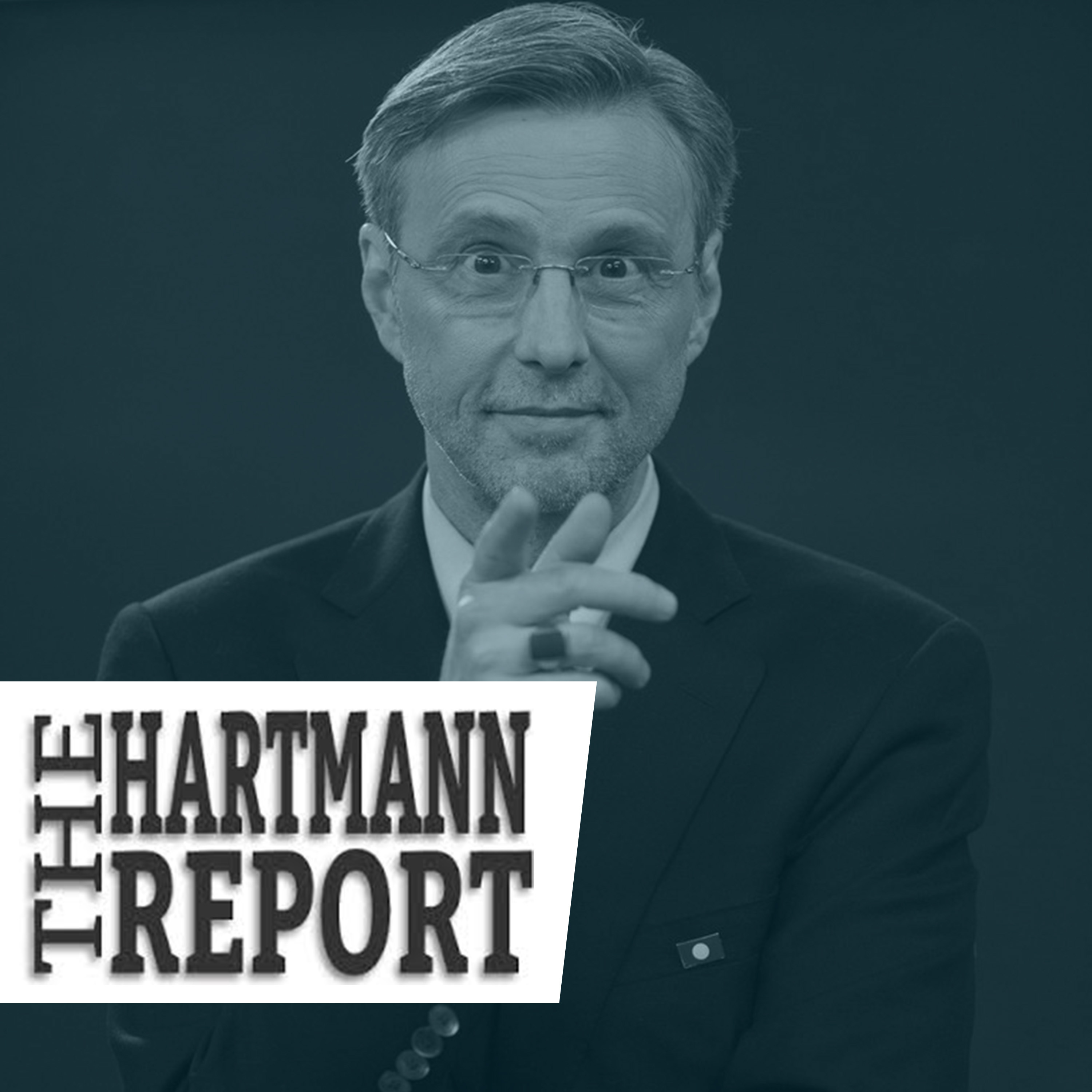
The Hartmann Report
Thom Hartmann
The Glenn Show
Glenn Loury
#RolandMartinUnfiltered
Roland S. Martin
Newt's World
Gingrich 360
Pod Save America
Crooked Media
Ralph Nader Radio Hour
Ralph Nader
Bannon`s War Room
WarRoom.org
Bannon’s War Room
dan fleuette
The Young Turks
TYT Network
The Beat with Ari Melber
Ari Melber, MS NOW
The Damage Report with John Iadarola
TYT Network
The Majority Report with Sam Seder
Sam Seder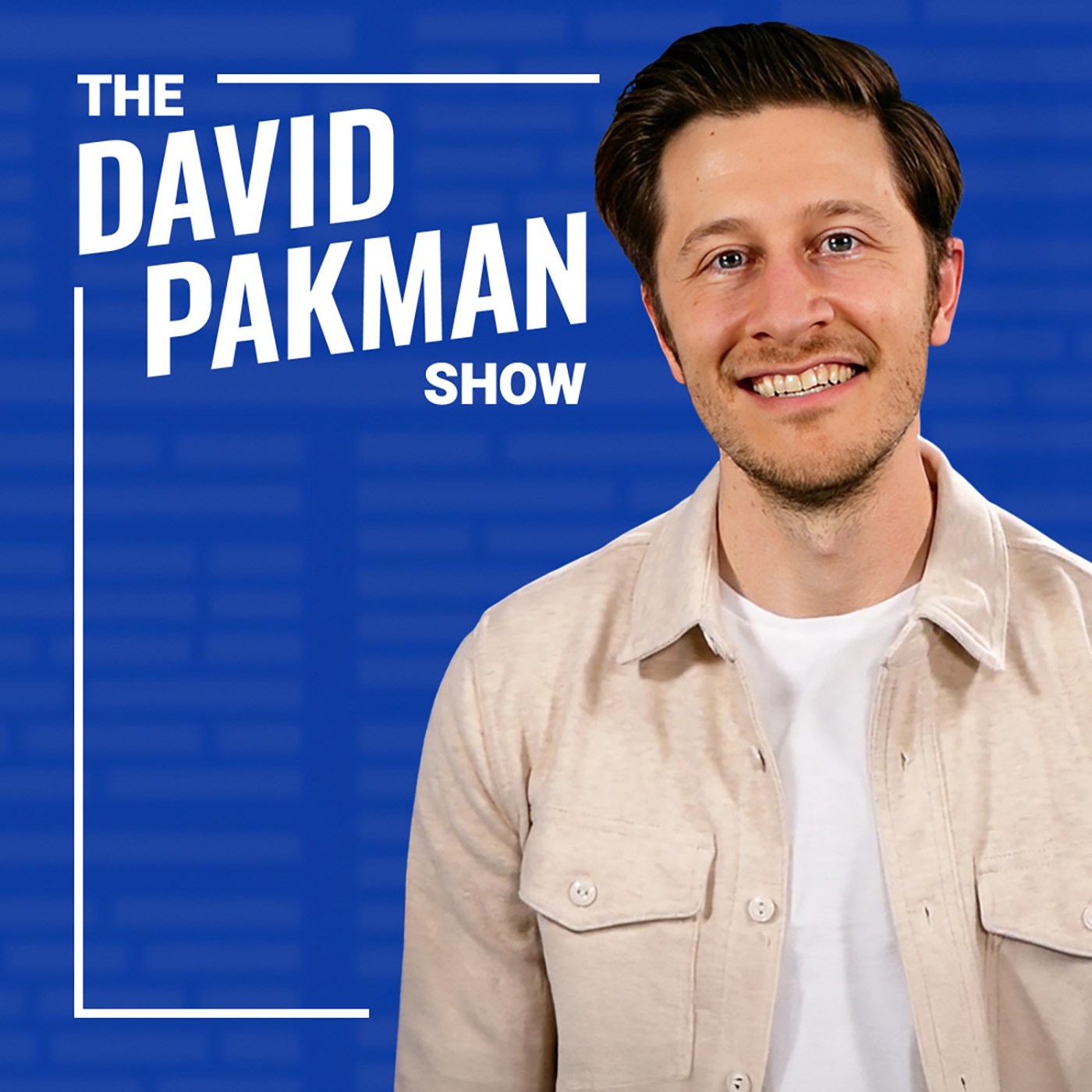
The David Pakman Show
David PakmanGet A Grip with Kendall Reusing
Kendall Reusing
Ultimately with R.C. Sproul
Ligonier Ministries
Grace to You: Radio Podcast
John MacArthur
The Briefing with Albert Mohler
R. Albert Mohler, Jr.
StarTalk Radio
Neil deGrasse Tyson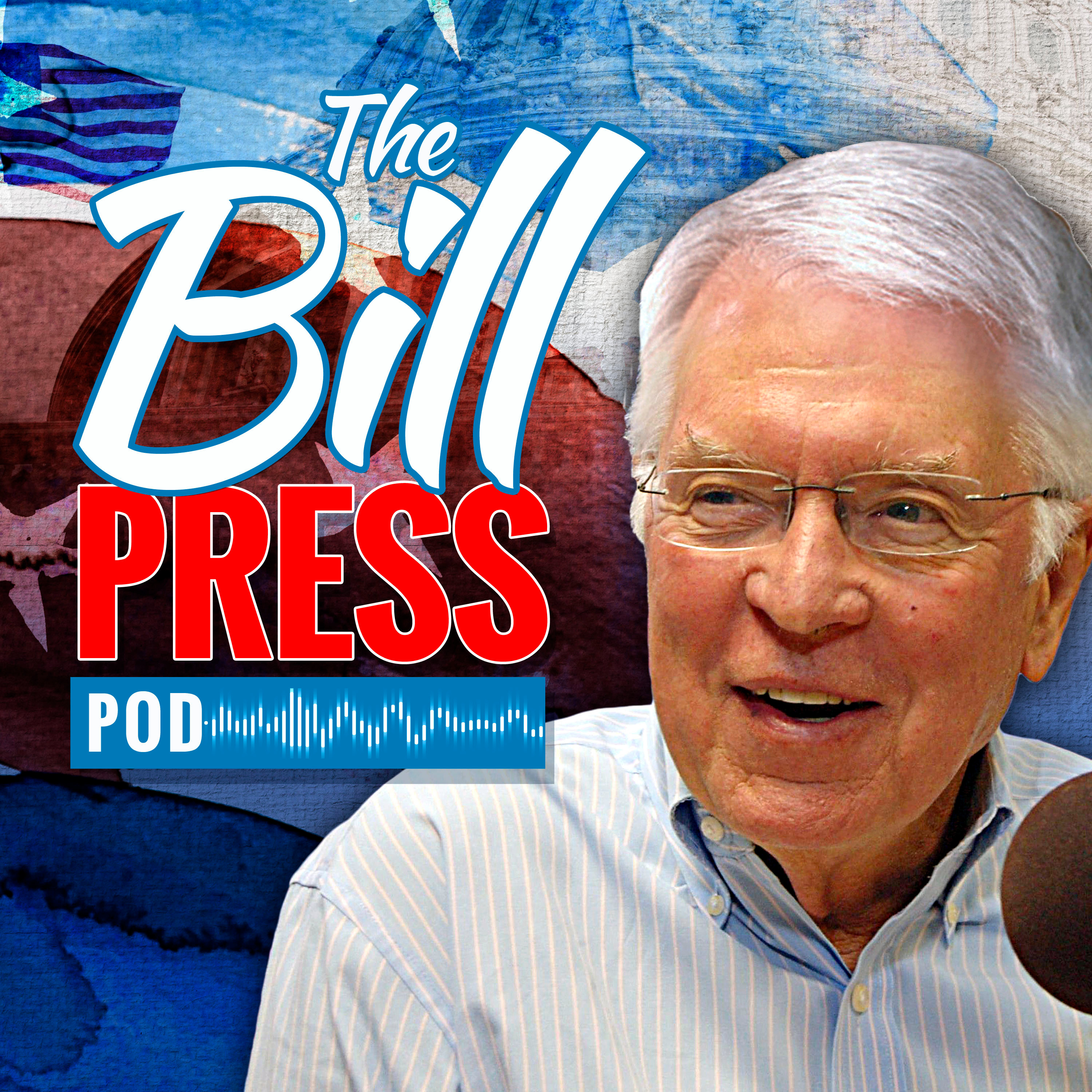
The Bill Press Pod
BP Pods
Ask Pastor John
Desiring God
The Weekly Show with Jon Stewart
Comedy Central
Ask Ligonier
Ligonier Ministries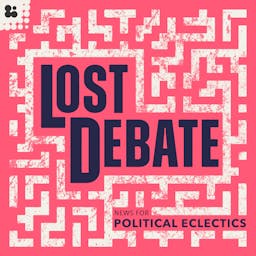
Lost Debate
The Branch
Coffee-Time-Again
Dale Hutchinson
5 Minutes in Church History with Stephen Nichols
Ligonier Ministries
The Ezra Klein Show
New York Times Opinion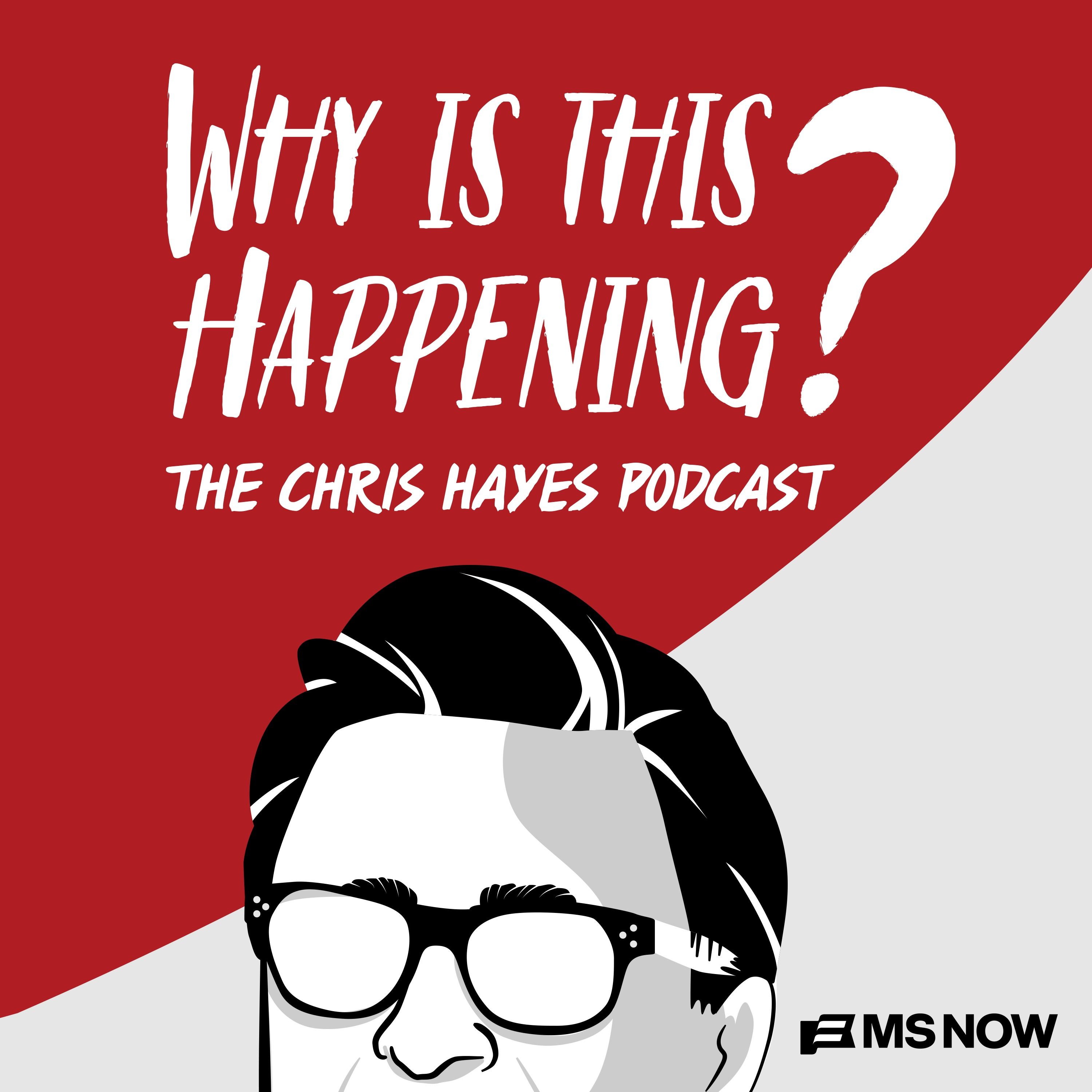
Why Is This Happening? The Chris Hayes Podcast
MS NOW, Chris Hayes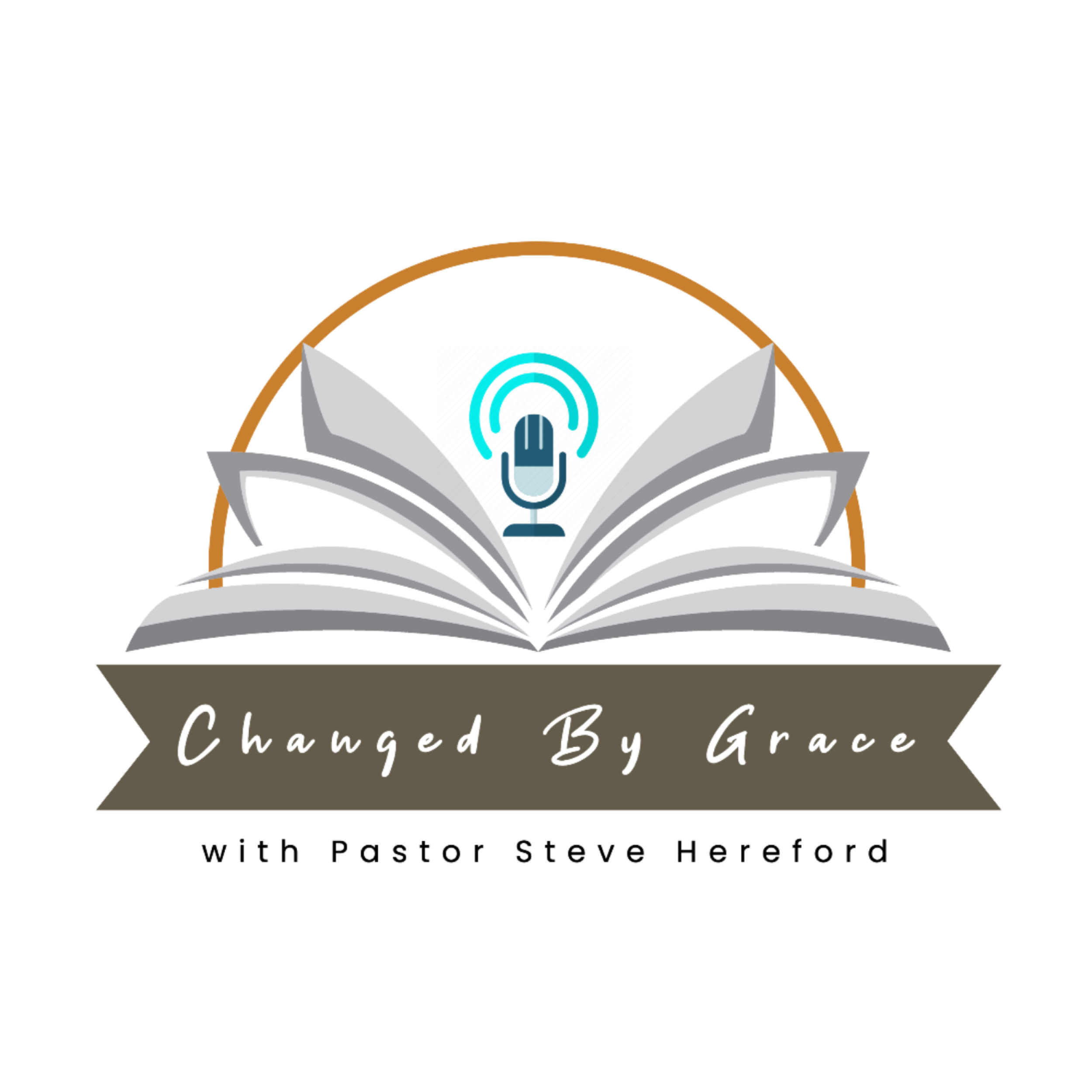
Changed By Grace
PodPoint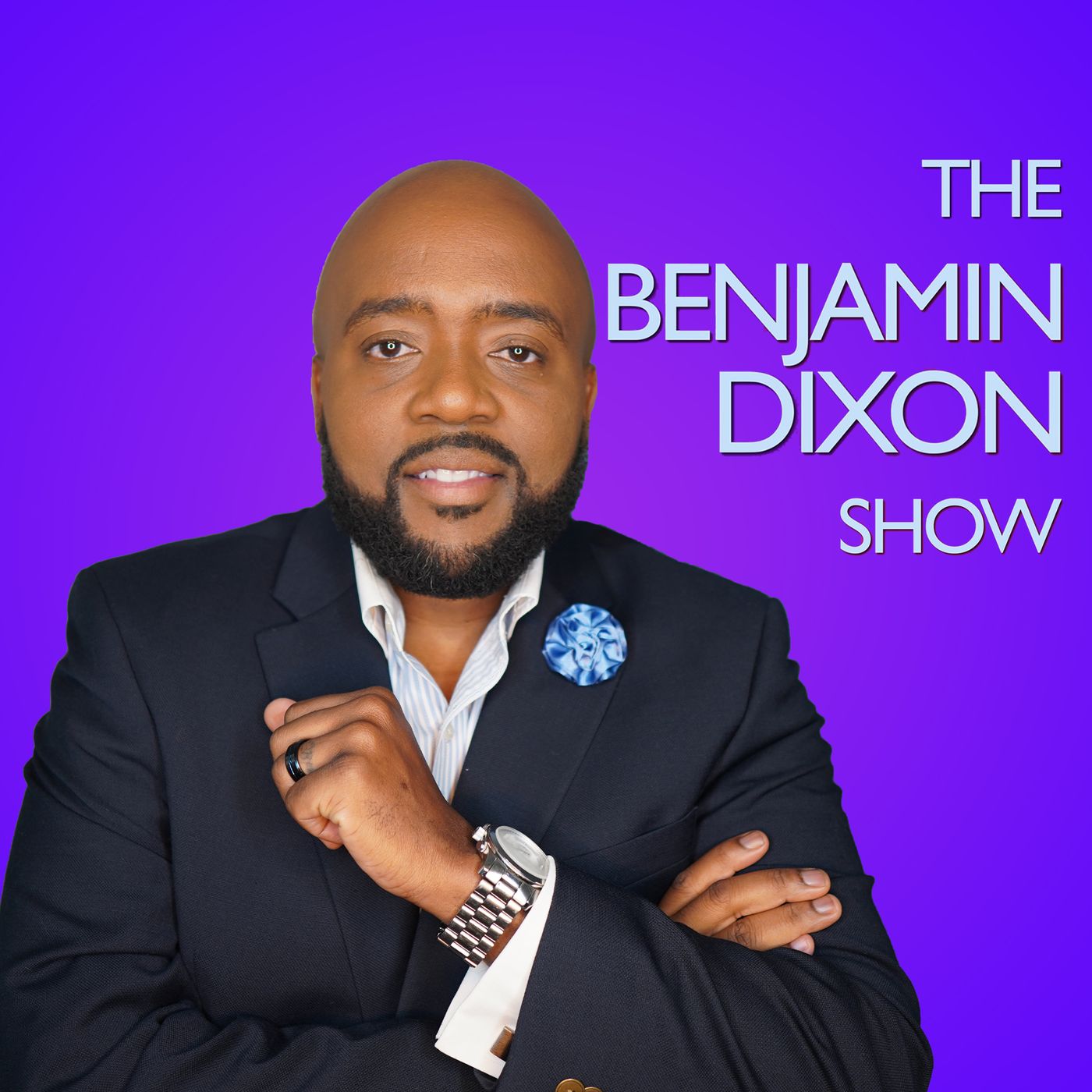
The Benjamin Dixon Show
The Benjamin Dixon Show
Thinking in Public with Albert Mohler
R. Albert Mohler, Jr.
Who Killed JFK?
iHeartPodcastsThe MacArthur Center Podcast
The Master's Seminary
Jean Jacques Machado : No Gi Required
Jay Zeballos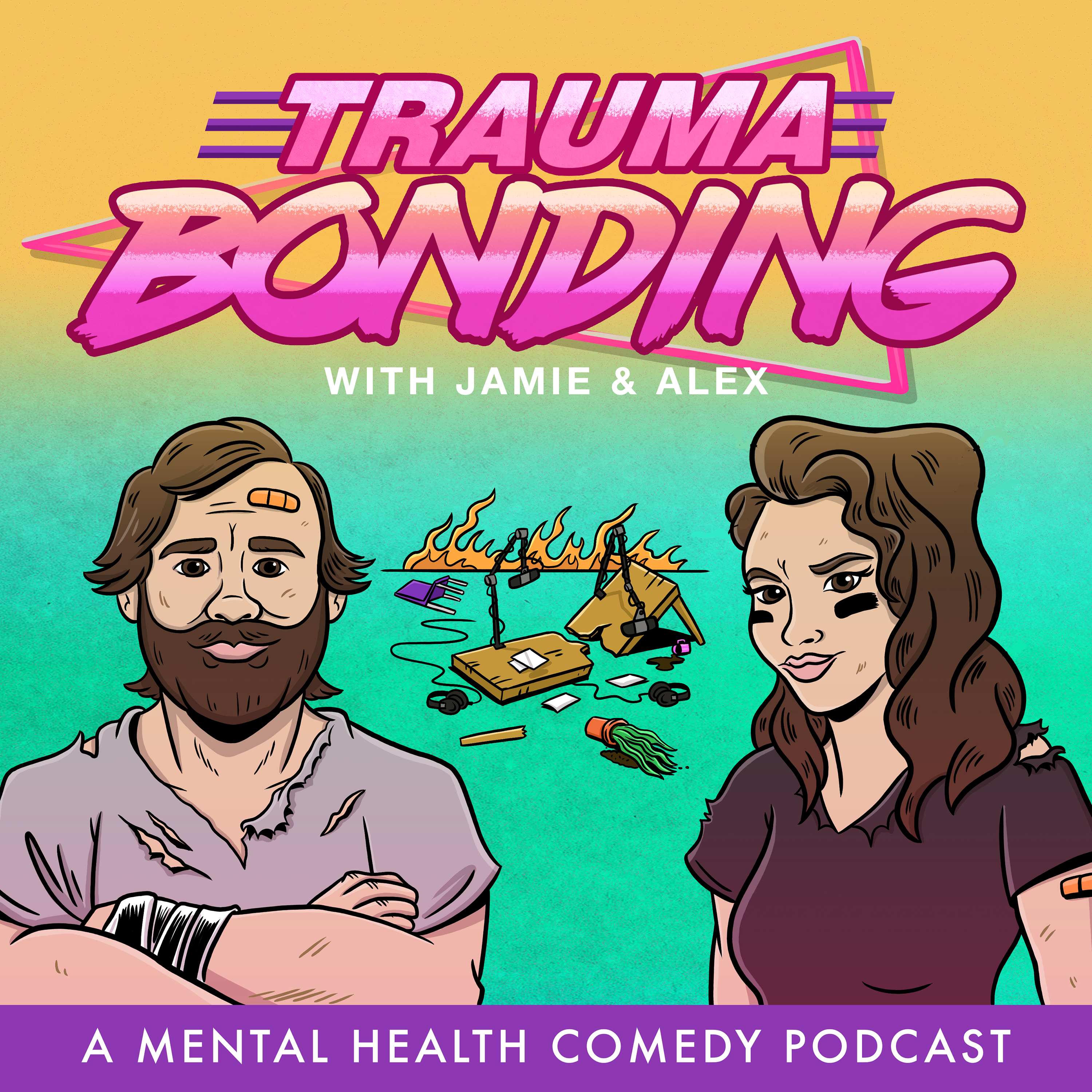
Trauma Bonding
Jamie Kilstein
This Day in History
The HISTORY Channel
The Ben Shapiro Show
The Daily Wire
The Sean Hannity Show
Sean Hannity
Breaking Points with Krystal and Saagar
iHeartPodcasts
The Kyle Kulinski Show
Kyle Kulinski